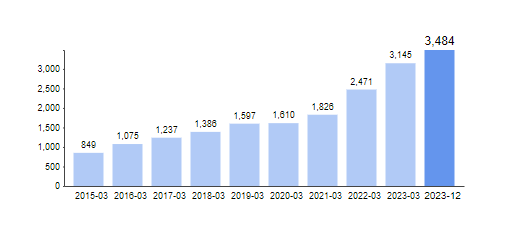Top 10 Tips For Automating Trading And Regularly Monitoring Trading In Stocks, From Penny Stocks To copyright
Automation and regular monitoring of AI stock trades are crucial to maximize AI trading, particularly in volatile markets like the penny stock market and copyright. Here are 10 top tips to automate your trades as well as making sure that your performance is maintained through regular monitoring:
1. Set clear goals for trading
Tip Consider your trading goals. These include the risk tolerance level and return expectations, as well as preference for assets (penny stock and copyright) and more.
What is the reason: A clear objective guides the selection of AI algorithm rules for risk management, as well as trading strategies.
2. Reliable AI Trading Platforms
TIP #1: Use AI-powered platforms to automate and integrate your trading with your broker or copyright exchange. Examples include:
For Penny Stocks: MetaTrader, QuantConnect, Alpaca.
For copyright: 3Commas, Cryptohopper, TradeSanta.
Why: An automated platform should have an effective execution capability.
3. Customizable Trading Strategies are the main focus
Tip: Use platforms that let you create or customize trading algorithms that are tailored to your specific strategy (e.g., trend-following, mean reversion, etc.).).
Why? The flexible algorithms allow you to tailor the strategy to fit your individual trading style.
4. Automate Risk Management
Create risk management tools that are automated, such as stop loss orders, trailing-stops and take-profit levels.
What’s the reason? These precautions protect you from big losses in volatile markets, such as penny stocks and copyright.
5. Backtest Strategies Before Automation
Tips: Test your automated algorithms to determine the performance prior to starting.
Why? Because by backtesting you can be sure that the strategy has the potential to be successful in the real-time market.
6. Regularly monitor performance and adjust settings
Tip: Even if your trading is automated, it is important to still monitor the performance of your account in order to spot any issues or poor performance.
What to Watch: Profits and losses, slippage, as well as whether or not the algorithm is aligned or not with current market conditions.
The reason: Monitoring the market continuously allows timely adjustments when conditions change.
7. The ability to adapt Algorithms – Implement them
TIP: Choose AI tools that adjust trading parameters according to real-time data. This allows you to adjust your AI tool to changing market conditions.
Why? Because markets change constantly, adaptive algorithms can be used to improve strategies for penny stocks or cryptos in order to be in line with new trends and fluctuations.
8. Avoid Over-Optimization (Overfitting)
Beware of over-optimizing a system based on past data. This could lead to overfitting, in which the system performs better on backtests than in real conditions.
The reason: Overfitting decreases the strategy’s ability to adapt to the market’s future conditions.
9. AI to help with Market Analysis
Tips: Use AI to identify abnormal market patterns or other anomalies in the data (e.g., sudden increases in the volume of trading news sentiment or the activity of copyright whales).
Why? Early recognition of these signals will enable you to make changes to your automated trading strategies prior to significant market movements take place.
10. Integrate AI for regular alerts and notifications
Tip: Make real-time notifications for important market events, trades executed or modifications in your algorithm’s performance.
Why? Alerts let you know about important market movements. They also allow you to react fast, particularly in markets that are volatile (like copyright).
Cloud-based solutions are a great method to increase the size of your.
Tips: Make use of cloud-based platforms to boost scalability and speed. You can also employ multiple strategies at the same time.
Why: Cloud solutions allows your trading system to run all day long, 7 days a week in complete silence. This is vital for copyright-markets that are never shut down.
Automating your trading strategy, and keeping regular monitoring will enable you to benefit from AI powered stock and copyright trading by reducing risk and improving performance. See the recommended my response for ai sports betting for website info including ai for stock market, penny ai stocks, trading with ai, ai stock market, ai for trading, best ai copyright, ai stocks to invest in, incite, ai stock analysis, ai for investing and more.

Top 10 Tips To Combine Ai With Fundamental Analysis For Stock Pickers, Predictions And Investments
The combination of AI with fundamental analysis can increase the accuracy of stock pickers. This gives investors a more comprehensive method for making investment decisions. Here are 10 suggestions to integrate AI and fundamental analysis to provide better stock predictions and investments:
1. Make use of AI to assist in Data Gathering and Processing
Tip: Automate the collection of data, the cleaning and analysis with AI for financial statements, earnings reports and economic indicator.
What’s the reason? AI can swiftly sift through large volumes of data to identify patterns or important metrics, which can save time while ensuring that important information is not missed.
2. Incorporate Key Financial Ratios into AI Models
Tip Tips: Feed AI with the most fundamental metrics, such as P/E ratios (Pearl-to-Equity), P/B ratios (Pearl-to-Balance-Ratio) ROE (Return on Equity) and free-cash flow.
These ratios can be used to assess the financial strength of a company and also its value. AI is able to process these metrics more efficiently and recognize patterns that might not immediately be apparent to human analysts.
3. AI Predictive power combined with Fundamental Insights
Tip: You can use AI to enhance the accuracy of your fundamental analysis. For example, you can forecast stock prices by using historical data and future-oriented fundamental metrics.
The reason: AI models incorporate more variables and patterns complex than traditional models. This improves predictions founded on the fundamental analysis.
4. Automate Earnings Estimates and Valuation Models
Tip: Use AI for automated and refined earnings estimations, as well valuation models (such a Discounted Cash flow models) that take into the past and present information.
Why: AI allows models to be re-adjusted quickly as new data is available that allows for more precise forecasts and valuations of stocks.
5. Integrate macroeconomics with business fundamentals
TIP Recommendation: Make use of AI for micro-level fundamentals (e.g. earnings, company performance and management skills, etc.) and macroeconomic indicators. ).
The reason: AI is able to examine the effect that larger economic trends have on a business’s performance. This allows you to predict stock performance more accurately by understanding external influences that may influence the business.
6. Utilize Natural Language Processing (NLP) for News and Earnings calls
Tip: Implement NLP to process non-structured data for example, news articles transcripts of earnings calls, or social media. Combine it with your company’s core information.
What is the reason: NLP helps AI discover insights and sentiment from the qualitative data. It provides context to key metrics like finding new market challenges or management changes that may impact growth in the coming years.
7. AI Real-Time Analysis and Long-Term Analysis
Tips: Make use of AI to track and analyze real-time market data while using fundamental analysis to guide long-term investment decision-making.
Why: AI gives quick and immediate response to changes in market conditions, but fundamental analysis offers a longer-term perspective, resulting in an investment plan that’s well-balanced.
8. Find Hidden Opportunities using AI-Enhanced Fundamental Screening
Tips: Develop AI models that automatically filter for overvalued and undervalued stocks by combining fundamental metric and market behavior.
What’s the reason? AI can reveal hidden opportunities for investment by detecting patterns that would not be obvious using the traditional techniques of fundamental analyses.
9. AI Insights for Risk Management to fine-tune Risk Management
Tip. Utilize AI to help improve risk-management by assessing the financial stability of a business and predicting possible risks, such liquidity problems or changes to regulatory requirements, based upon its foundational.
AI can be used to dynamically assess the risks and alter positions to help protect your portfolio and maximize its the fundamental value.
10. Regularly Reassess Models with New Data
Tip : Constantly feed your AI system with updated earnings reports and financial data along with macroeconomic indicators that can help refine the predictions. This will allow you to modify your stock selection.
Why: Because the financial and market conditions are always changing, you should constantly update your models to ensure that your selections of stocks remain relevant.
Bonus: Use AI to Automate Portfolio Rebalancing
Tips : Leverage AI in order to keep track of your portfolio of investments and make adjustments based upon the fundamentals, for example when the organization’s finances deteriorates.
The reason: AI can assist in rebalancing portfolios using fundamental triggers to help maintain optimal asset allocation.
When you combine AI and fundamentals analysis, you’ll be able to develop a more robust and data-driven strategy for stock selection and investment. AI improves the ability to detect patterns and adapt to new data. Fundamental analysis provides a solid foundation for long-term investing decisions. This hybrid approach helps you make informed, efficient and timely investment choices. Follow the most popular over here for blog tips including incite, ai trading app, free ai tool for stock market india, best ai stocks, trade ai, ai for stock trading, ai stock price prediction, investment ai, free ai trading bot, ai stock trading and more.

Leave a Reply